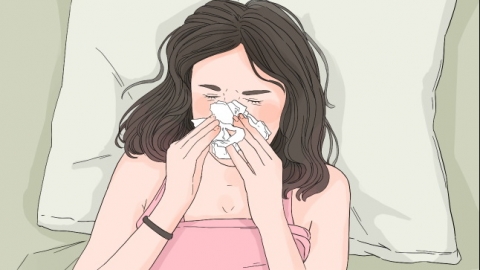Why is the flu more severe at night than during the day?
Influenza, commonly known as the flu, may worsen at night compared to daytime due to several factors including significant temperature differences between day and night, decreased hormone levels at night, impaired body temperature regulation, phlegm irritation of the trachea, and increased focus on symptoms. If symptoms are severe, prompt medical attention is recommended. Detailed explanations are as follows:

1. Significant temperature differences between day and night: There is usually a temperature difference between daytime and nighttime, with nighttime temperatures typically lower. Relatively cold air can irritate the nasal mucosa, worsening symptoms. Additionally, when temperatures drop at night, phlegm in the trachea may move and irritate the trachea and bronchi, leading to more severe coughing.
2. Decreased hormone levels at night: Due to the body's circadian rhythm, hormone levels, especially cortisol, are lower in the evening. At this time, immune system function is weaker compared to daytime, which may exacerbate symptoms of influenza.
3. Impaired body temperature regulation: At night, the body's temperature regulation center may be affected, leading to increased body temperature, which can worsen flu symptoms such as fever and headache. Additionally, improper thermal regulation during sleep—for example, using bedding that is too thin or too thick—can affect the body's ability to dissipate heat, thereby worsening fever symptoms.
4. Phlegm irritation of the trachea: Influenza often causes excessive coughing with phlegm. When phlegm accumulates in larger amounts at night, it can irritate the tracheal and bronchial cilia, leading to worsened coughing symptoms.
5. Increased focus on symptoms: During the day, while working or studying, patients may be distracted by external matters and less aware of their symptoms. However, in the more relaxed environment at night, patients may focus more attention on their symptoms, perceiving them as more severe.
To alleviate symptoms of influenza, patients should pay particular attention to maintaining good indoor air circulation and an appropriate room temperature at night, avoid excessive fatigue and emotional stress, ensure adequate sleep and rest, and actively follow medical advice for treatment.









